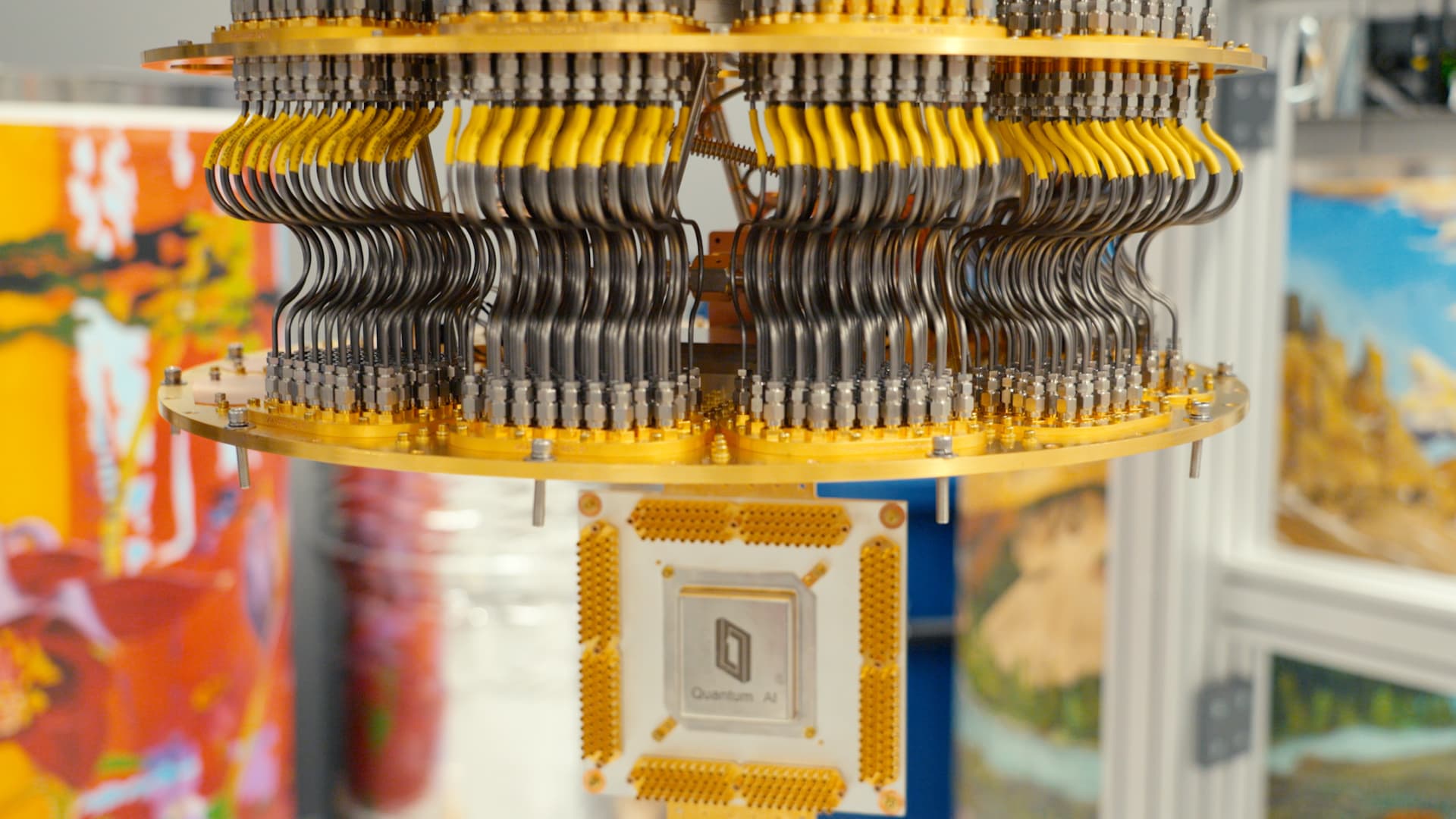Exploring the Potential of Quantum Computing to Enhance AI Innovations

Google’s Quantum Computing Ambitions
Introduction to Quantum Computing
In Santa Barbara, California, a group of scientists at Alphabet are working on a groundbreaking project: developing some of the world’s most advanced quantum computers. Quantum computing represents a significant leap in technological capability, harnessing the principles of quantum mechanics to process information in ways classical computers cannot match.
The Role of AI in Quantum Computing
Julian Kelly, who oversees hardware at Google Quantum AI, highlighted the potential interplay between quantum computing and artificial intelligence (AI). He believes that as these technologies evolve, they will complement each other extensively.
Google’s Position in the AI Landscape
While OpenAI gained early recognition with the launch of ChatGPT in late 2022, Google has been perceived as falling behind in the generative AI race. However, in a bid to regain its footing, the company introduced a new quantum computing chip called Willow. This chip promises to solve complex problems far faster than traditional computers, showcasing the capability to reduce errors significantly through the addition of quantum bits.
Achievements in Quantum Technology
John Preskill, director of the Caltech Institute for Quantum Information and Matter, acknowledged the significance of Willow, referring to it as a milestone in the field. This advancement positions Google to potentially lead the next wave of technology. Furthermore, it opens up opportunities for turning research into commercially viable products, especially as AI technologies face limitations in sourcing high-quality data.
Quantum Computers and Data Generation
One of the compelling applications for quantum computers is their ability to generate new and valuable data. As traditional AI models hit a plateau, lacking sufficient quality data for training, quantum computers could play a pivotal role in overcoming this hurdle.
For instance, the AI model AlphaFold, developed by Google DeepMind, revolutionized the study of protein structures and was awarded the 2024 Nobel Prize in Chemistry. According to Kelly, AlphaFold utilizes data informed by quantum mechanics, which is relatively uncommon. He posits that quantum computers have the potential to create data that enhances AI’s understanding of quantum mechanics, thus enriching its training data.
Future Prospects
Kelly believes that practical, game-changing applications of quantum computing are only about five years away. However, for Google to capitalize on these breakthroughs, the challenge lies in translating innovative research into a sustainable business model.
Summary of Key Features of Google’s Quantum Initiative
- Location: Based in Santa Barbara, California.
- Project: Development of advanced quantum computers.
- Chip Technology: Introduction of the Willow chip with superior problem-solving capabilities.
- AI Integration: Exploration of how quantum computing can enhance AI by generating new data.
- Significant Recognition: Advances recognized by leading experts, including a milestone statement from John Preskill.
- Future Direction: Aiming for practical applications in quantum computing within the next five years, alongside commercial viability.
By advancing its efforts in both quantum computing and AI, Google aims to secure a leading position in the technology landscape as the boundaries of computation continue to expand. The evolving relationship between these fields represents a promising frontier for innovation.






